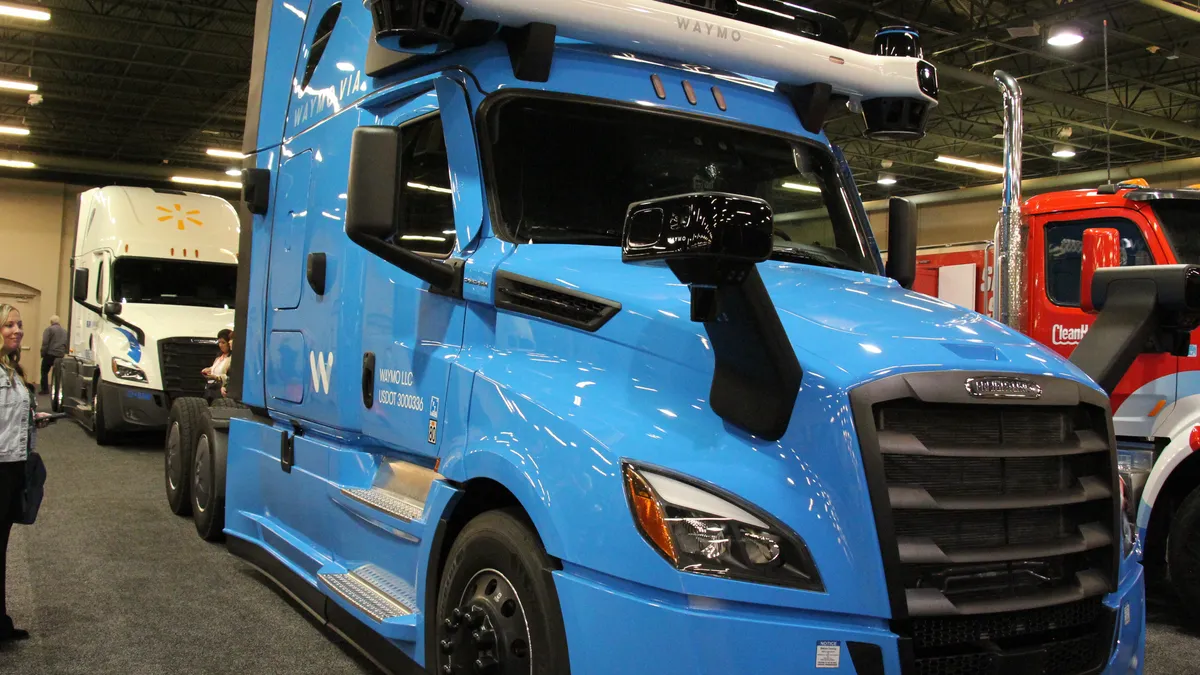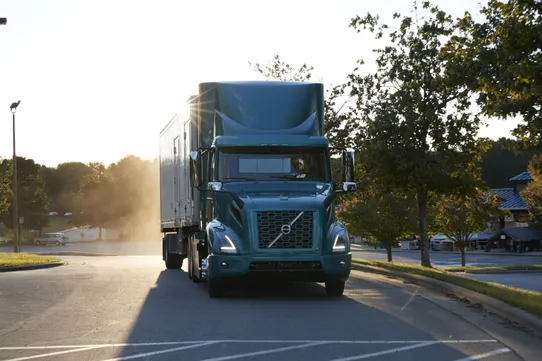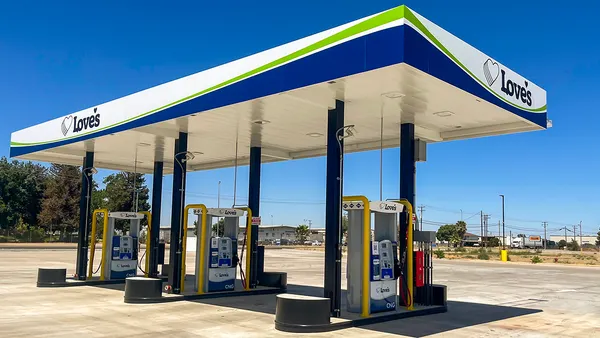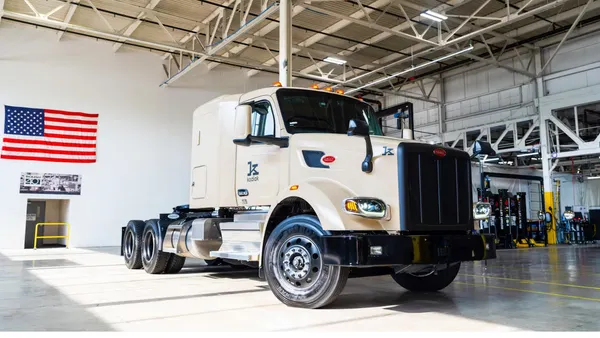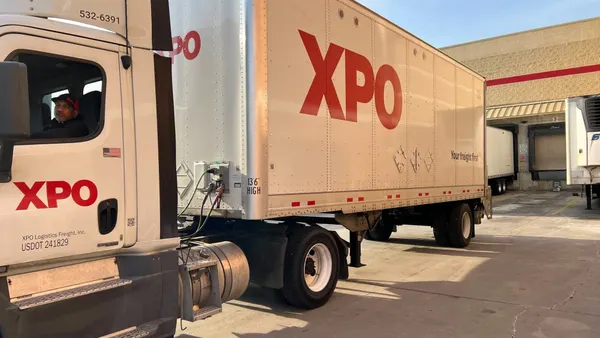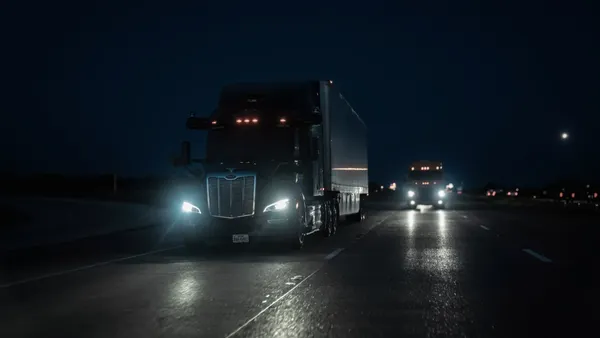Dive Brief:
- Waymo is shifting its focus away from commercializing autonomous tractor-trailers and “doubling down” on self-driving cars, the Google-linked company said Wednesday in a blog post.
- “With our decision to focus on ride-hailing, we’ll push back the timeline on our commercial and operational efforts on trucking, as well as most of our technical development on that business unit,” said Waymo, a subsidiary of Google parent company Alphabet.
- Not all of Waymo’s efforts will be redirected. The tech company said it will continue collaborating with its strategic partner, Daimler Truck North America, “to advance technical development of an autonomous truck platform” and will “follow through with the platform investments we’ve made to create a redundant chassis to facilitate autonomous trucking.”
Dive Insight:
Autonomous trucking firms have experienced challenges to their existence amid the long road to funding and finalizing their commercial offerings.
Waymo has raised billions of dollars along the way, including over $3 billion in 2020 alone before asking for another round of more than $2 billion in 2021.
Google began its self-driving car project in 2009 before Waymo became an independent subsidiary under Alphabet in 2016. Under the new parent company, Waymo kicked off a trucking pilot in 2017 in Atlanta, began carrying freight in 2018 and also partnered with C.H. Robinson, J.B. Hunt and UPS.
But the space is crowded and has many companies aiming to fully launch operations. Tech company Aurora Innovation has sought to commercialize self-driving trucking operations in late 2024, and its competitors include firms such as Kodiak Robotics, Torc Robotics and Waabi.
Meanwhile, some players in the autonomous trucking space have experienced turmoil. Embark Technology said in March it was cutting around 70% of its workforce and later decided to sell itself to AV software company Applied Tuition. TuSimple Holdings reported in June that it’s exploring the sale of its U.S. operations.



